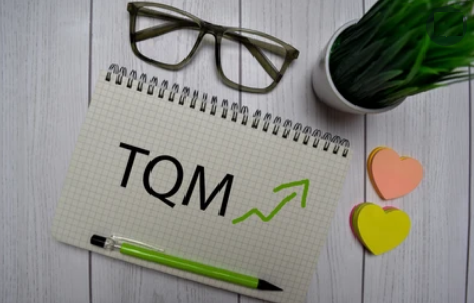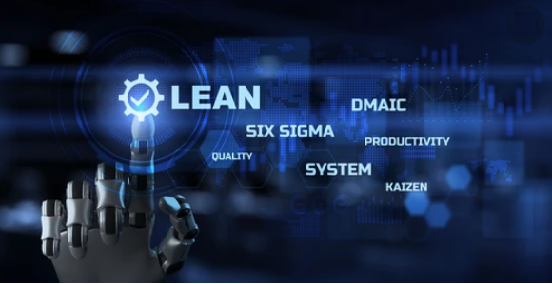- Home
- Continuous Improvement Certification Online
- Total Quality Management Methodology
Total quality management methodology
TQM Methodology... why implement?

There are several reasons to implement Total Quality:
- It is a market demand. The market has evolved so that the demand is much lower than the offer, customers have increased their demands on prices, deadlines and compliance with specifications
- The manufacturer or service company must demonstrate that it is able to meet the customer’s requirements.
- Failures are reduced. The principle of work is prevention and the processes are continually improved.
- Communication with the customer is improved.
- The efficiency and effectiveness of the organization is improved.
- Involvement of everyone in the organization is achieved.
TQM Implementation Thoughts:
The implementation of a Total Quality strategy implies a profound change in the way in which things are done, but it also implies previously the need for a substantial modification in the way of thinking, beliefs and value scales. The Structure of the organization must me reviewed and, if needed restructured in order to be able to sustain a quality assurance culture.
Total quality breaks with the paradigms that are different for the organization, in the sense that it allows adding value. Are new rules or models on how it is managed and done in the organization.
This flexibility will allow them to see new opportunities, finding potentially better ideas outside of their paradigms than existing ones. If the managers are not flexible. Those paradigms different from your perception may assimilate threats and an insurmountable barrier will be erected to develop a culture of total quality.
Quality evolves, along with the economy, since the application of the idea to industrial concepts until their application to service companies in general.
tqm Structure or integration from 8 principles

1. Customer focus: The first of the principles of Total Quality Management focuses on the people who buy your product or service. Customers determine the quality of the product or service. If your product or service meets a need and lasts as long or longer than expected, customers know they have invested their money in a quality product.
2. Total employee involvement: We can’t increase productivity, processes, or sales without the total commitment of all employees. The employees need to understand the vision and goals that have been communicated. They must be sufficiently trained and given the proper resources to complete tasks in order to be committed to reaching goals on time.
3. Process centered: Adherence to processes is essential in quality management. The processes ensure that the right steps are taken at the right time to ensure consistency and speed up production.
4. Integrated system: In general, a company is made up of many different departments, each with its own specific functions and purposes. These departments and functions must be interconnected with horizontal processes that must be the focus of Total Quality Management. But sometimes these departments and functions operate in isolation.
(See Types of Total Quality Management.)

5. Strategic & systematic approach: A critical part of the management of quality is the strategic and systematic approach to achieving an organization’s vision, mission, and goals. This process, called strategic planning or strategic management, includes the formulation of a strategic plan that integrates quality as a core component.
6. Continual improvement: Optimal efficiency and complete customer satisfaction don´t happen automatically, the continual improvement drives an organization to be both analytical and creative in finding ways to become more competitive and more effective at meeting stakeholder expectations.
7. Fact-based decision making: In order to know how well an organization is performing, data on performance measures are necessary. TQM requires that an organization continually collect and analyze data in order to improve decision making accuracy, achieve consensus, and allow prediction based on past history.
8. Communications: During times of organizational change, as well as part of day-to-day operation, effective communication plays a large part in maintaining morale and in motivating employees at all levels. Communications involve strategies, method, and timeliness.
(Also see Who Created Total Quality Management.)
The total quality management methodology is primarily a cultural initiative and a management style towards higher quality. Therefore, the scope in search of business excellence has migrated to a methodological philosophy, nowadays Lean Six Sigma.
Today's business leaders are looking for a kind or types of total quality management with a more systematic complement which can be adapted to the various strategic tools that are being generated, Lean Six Sigma is the right migration for that required environment.
InArtifexYou provide you with the right programs to continue advancing consistently with current knowledge requirements.